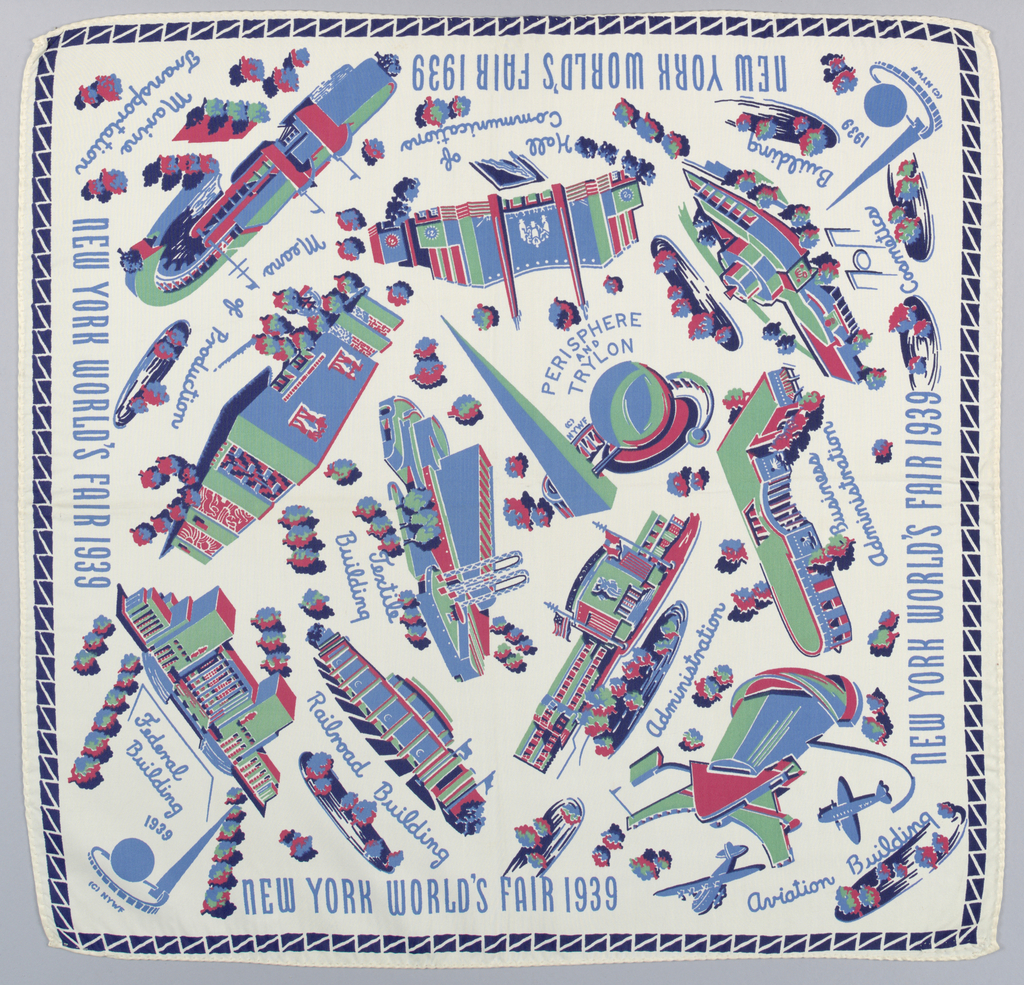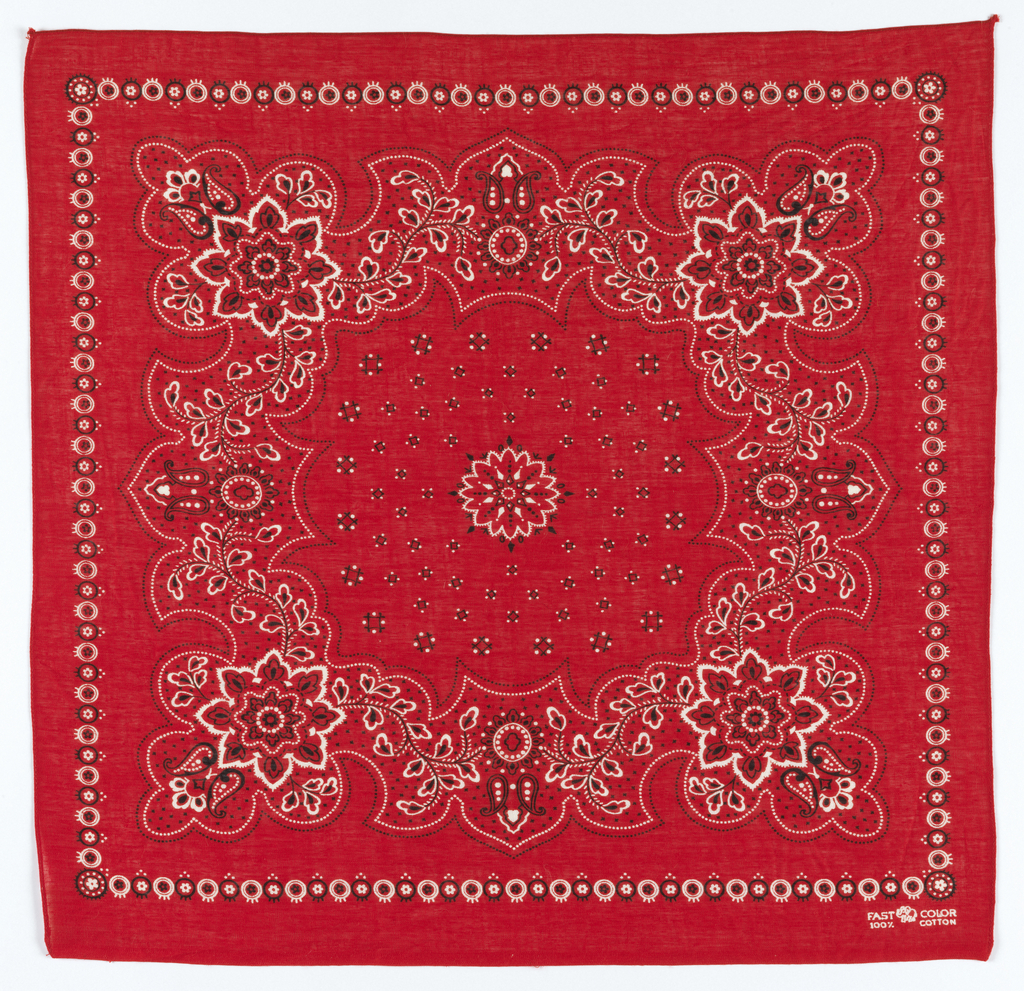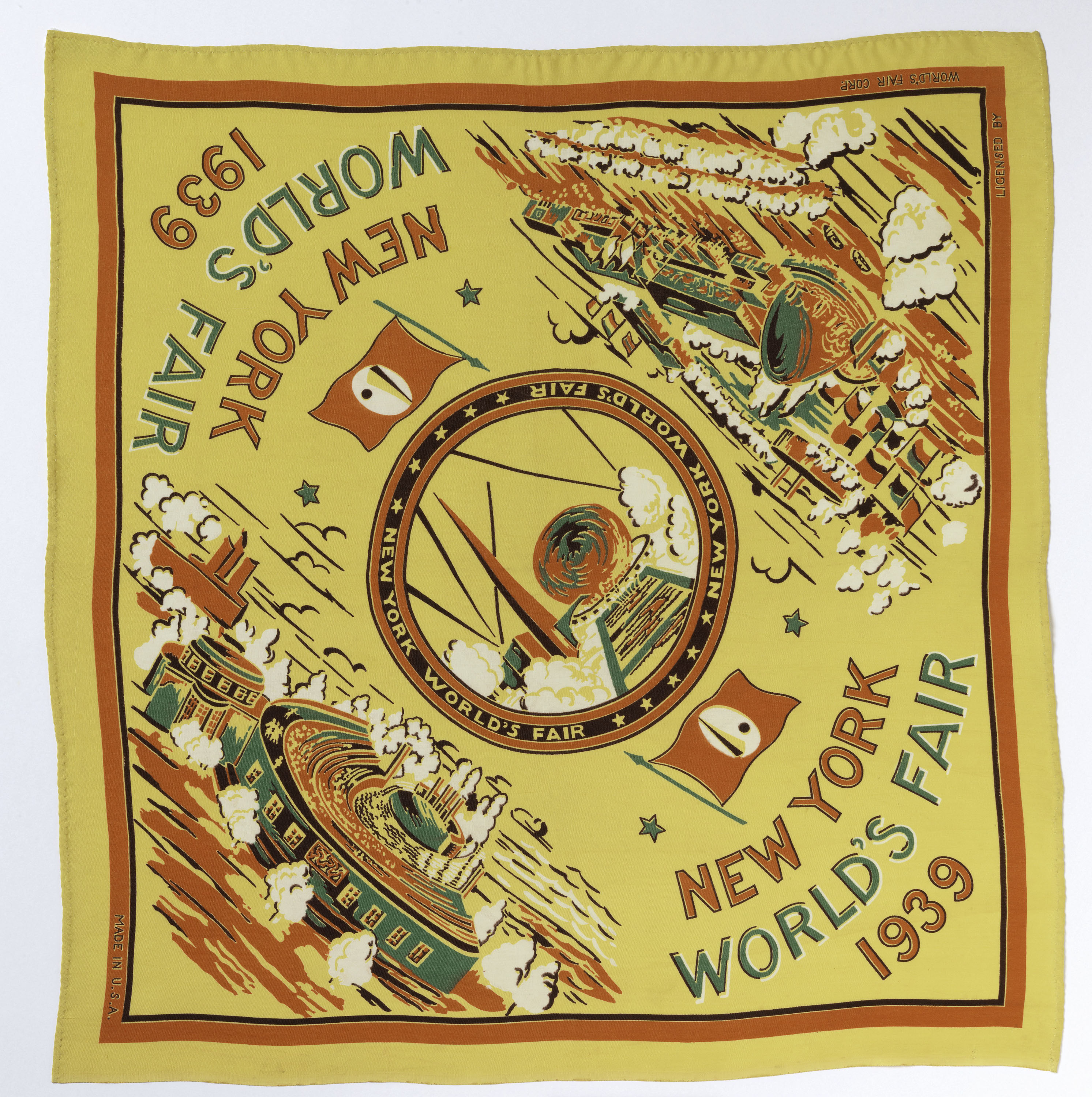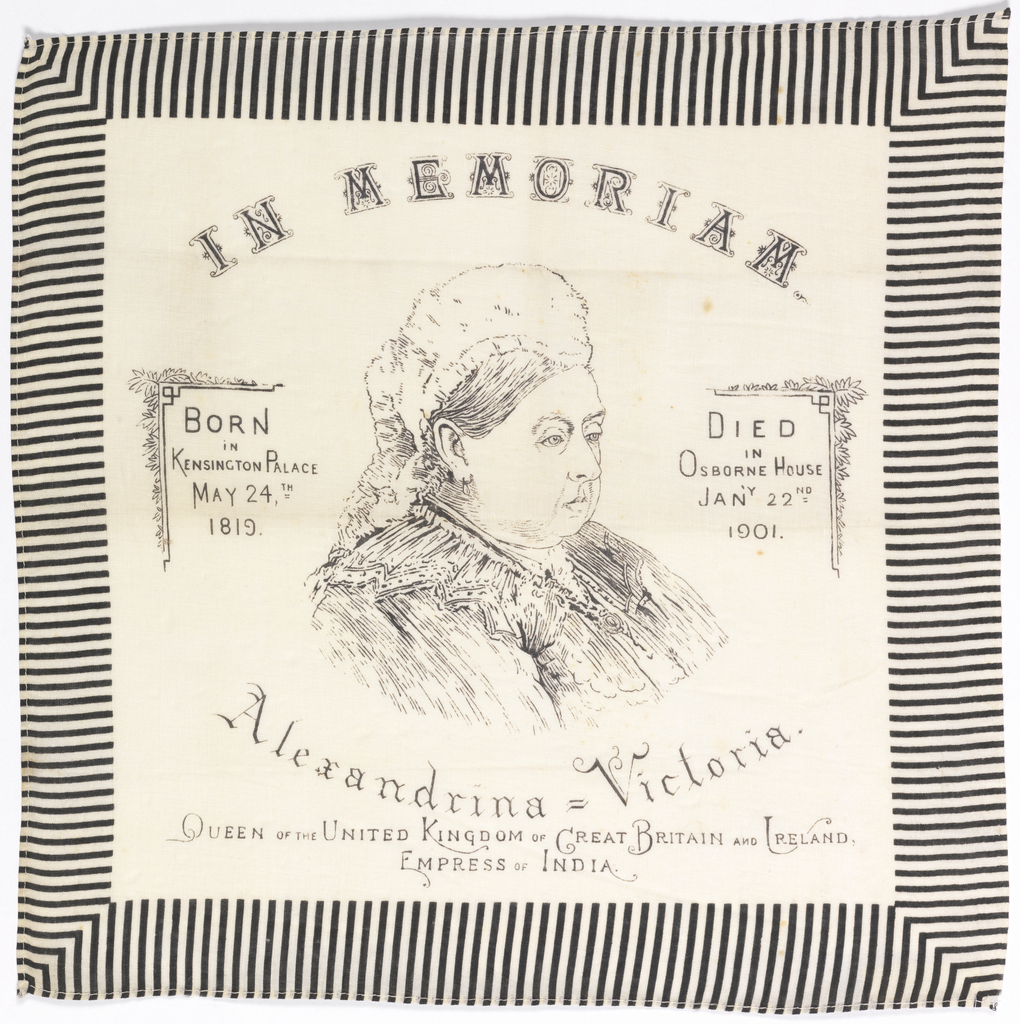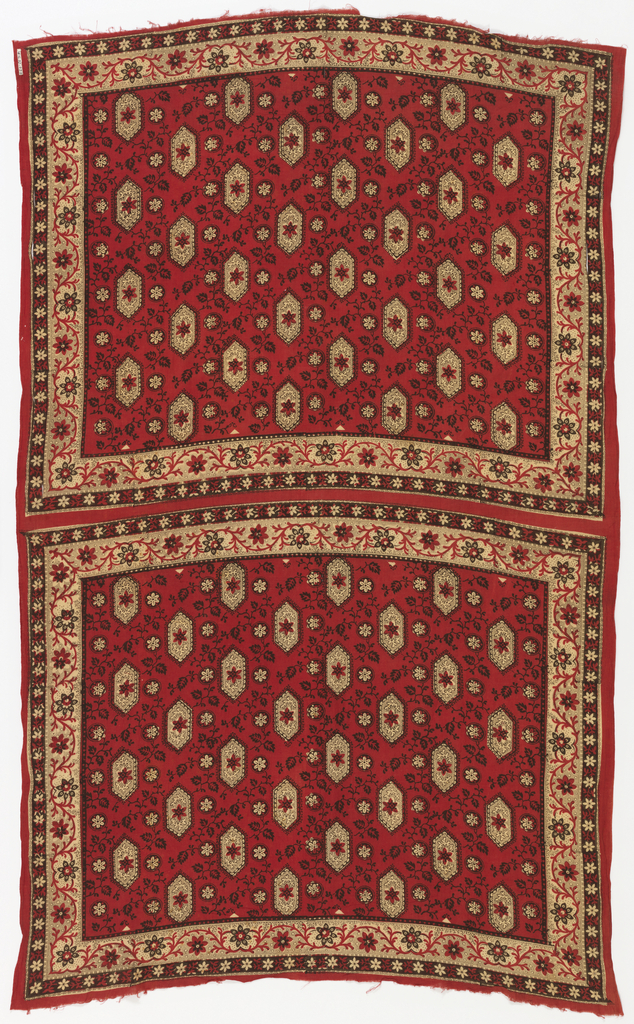This silk scarf or square, a souvenir of the 1939 World’s Fair in Flushing Meadows, Queens, New York, illustrates an assortment of the buildings erected for the fair: the iconic Trylon and Perisphere, designed by Wallace K. Harrison and J. André Fouilhoux[i]; the Marine Transportation Building, Hall of Communication, Means of Production, Textile Building, Administration...
The red cotton bandanna so closely linked to the American west was originally a tie-dyed silk scarf from India, and later the product of a number of European innovations. The Turkey-red process for dyeing cotton a brilliant, wash-fast scarlet red was mastered in Europe in the 18th century, but it was incompatible with printing processes....
The 1939 World’s Fair at Flushing Meadows Park in Queens was themed the ‘World of Tomorrow.’ Visitors came away with visions of radio-controlled highways, mechanical milking machines, and the 7-foot-tall Westinghouse robot. Many also left with Fair memorabilia, from the pins given away at the Futurama exhibition that read ‘I have seen the future,’ to...
Another sour puss. What is this show? Does it feel more real to pout than to preen? She was devastated when her beloved Albert died. It feels as if she never laughed again. But she had a job to do. It is important to have work. Someone can sell buckets. Someone can be Empress of...
By the mid-nineteenth century, both Glasgow, Scotland and Manchester, England were producing huge numbers of bandannas, printed cotton handkerchiefs imitating earlier tie-died silk handkerchiefs from India. The success of that industry was the result of perfecting two chemical processes: the so-called Turkey Red process for dying cotton a brilliant, washable red, and discharge printing, a...
